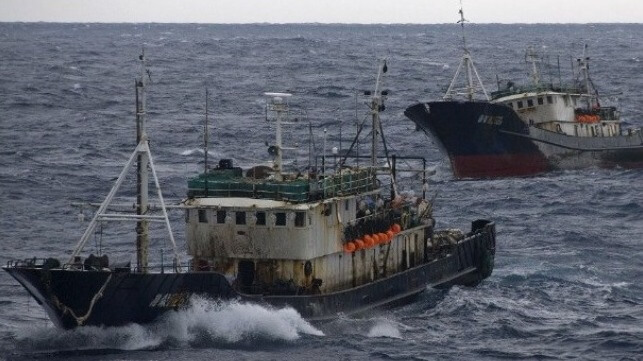IMO Urges Ratification of Cape Town Agreement on Fishing Vessel Safety

The International Maritime Organization (IMO) has renewed the push for countries to ratify the Cape Town fishing vessel safety agreement to help tackle the perennial problem of illegal fishing.
A decade after it was adopted in 2012, the international treaty that aims to make fishing safe, sustainable and legal as well as protect fishers has yet to come into force because too few countries have ratified it.
The treaty aims to establish standards for vessel construction and seaworthiness, nonslip decks, heating, ventilation of unmonitored machinery spaces, fire safety regulations, life-saving appliances, emergency procedures and radiocommunications, with the overall objective of making commercial fishing safe and sustainable.
“I remain confident that by working together, we will ensure the agreement enters into force to complete the missing pillar for safe, sustainable and legal fishing,” said Kitack Lim, IMO Secretary General.
He added the world cannot afford to be complacent when it comes to addressing the safety of fishers and fishing vessels, thus the need for countries to ratify the agreement to enable it to come into force.
To enter into force, the agreement must be ratified by 22 countries with a combined fleet of 3,600 fishing vessels with an aggregate 24 meters in length. Once that happens, fishers would be legally entitled to the same level of protection at sea that is enjoyed by merchant seafarers. So far, the Cape Town agreement has been ratified by 17 states with 1,925 fishing vessels declared.
Following a ministerial conference in 2019, more than 50 states have signed the Torremolinos Declaration to indicate their determination to ratify the agreement by its tenth anniversary, which will be in October. If the agreement is fully ratified by October, it could enter into force as early as October 2023.
According to Peter Horn, Project Director International Fisheries at the US-based NGO Pew Charitable Trusts, by ratifying the agreement, states will make it clear that they want fish and seafood that was caught only in a safe and sustainable way to enter their markets.
“The agreement is relevant anywhere fish and seafood products are consumed, which means everywhere in the world. Besides, consumers are increasingly demanding that the seafood they buy be sustainably caught,” he said.
Entry into force of the agreement will usher in an international regime that would contribute to the broader fight against illegal, unregulated and unreported fishing activities. This would help to protect world fish stocks, ensure fair competition in fishing, better working conditions, and safeguard fishers from human rights abuses.
Additionally, the regime would help to reduce marine litter from fishing vessels. It would also reduce search and rescue missions responding to distress calls from poorly-maintained fishing vessels.
The journey for bringing a binding safety regime for fishing vessels into force began in Torremolinos, Spain in 1977 with the adoption of the Torremolinos international convention for the safety of fishing vessels. In 1993, the Torremolinos Protocol was adopted, but it also did not achieve the desired level of ratification, acceptance, approval or accession due to legal and technical difficulties.
In 2012, the Cape Town agreement was adopted to address the difficulties and to facilitate ratification of a binding instrument establishing an international safety regime for fishing vessels.
No comments:
Post a Comment